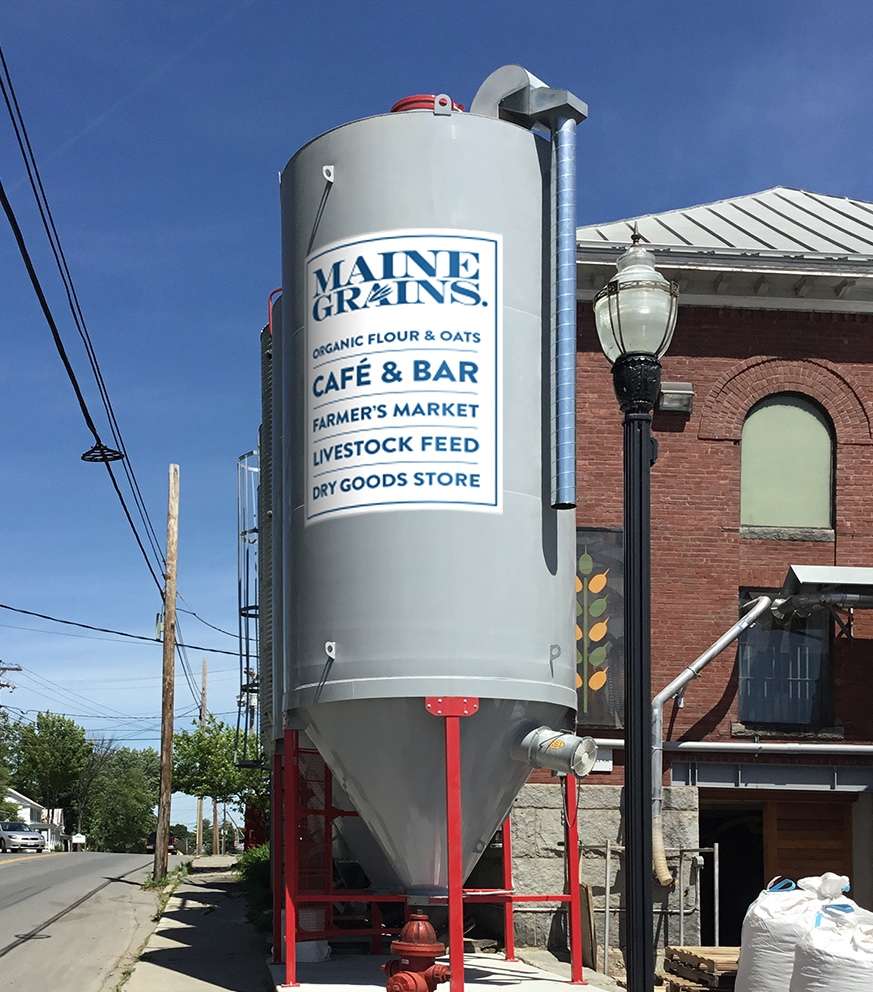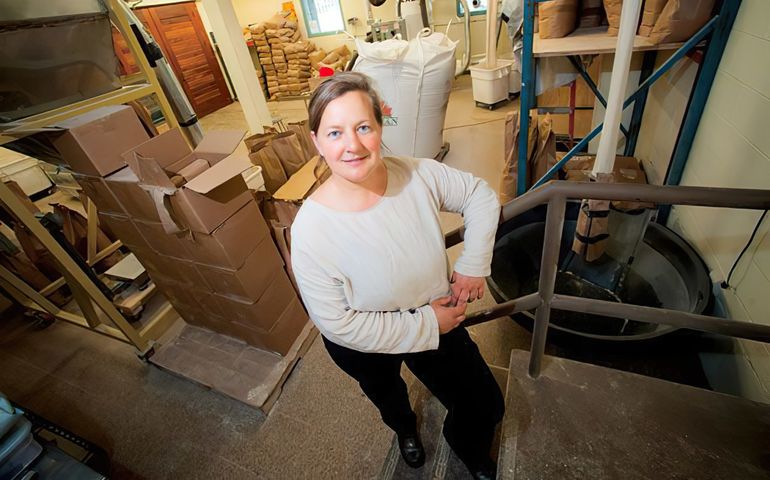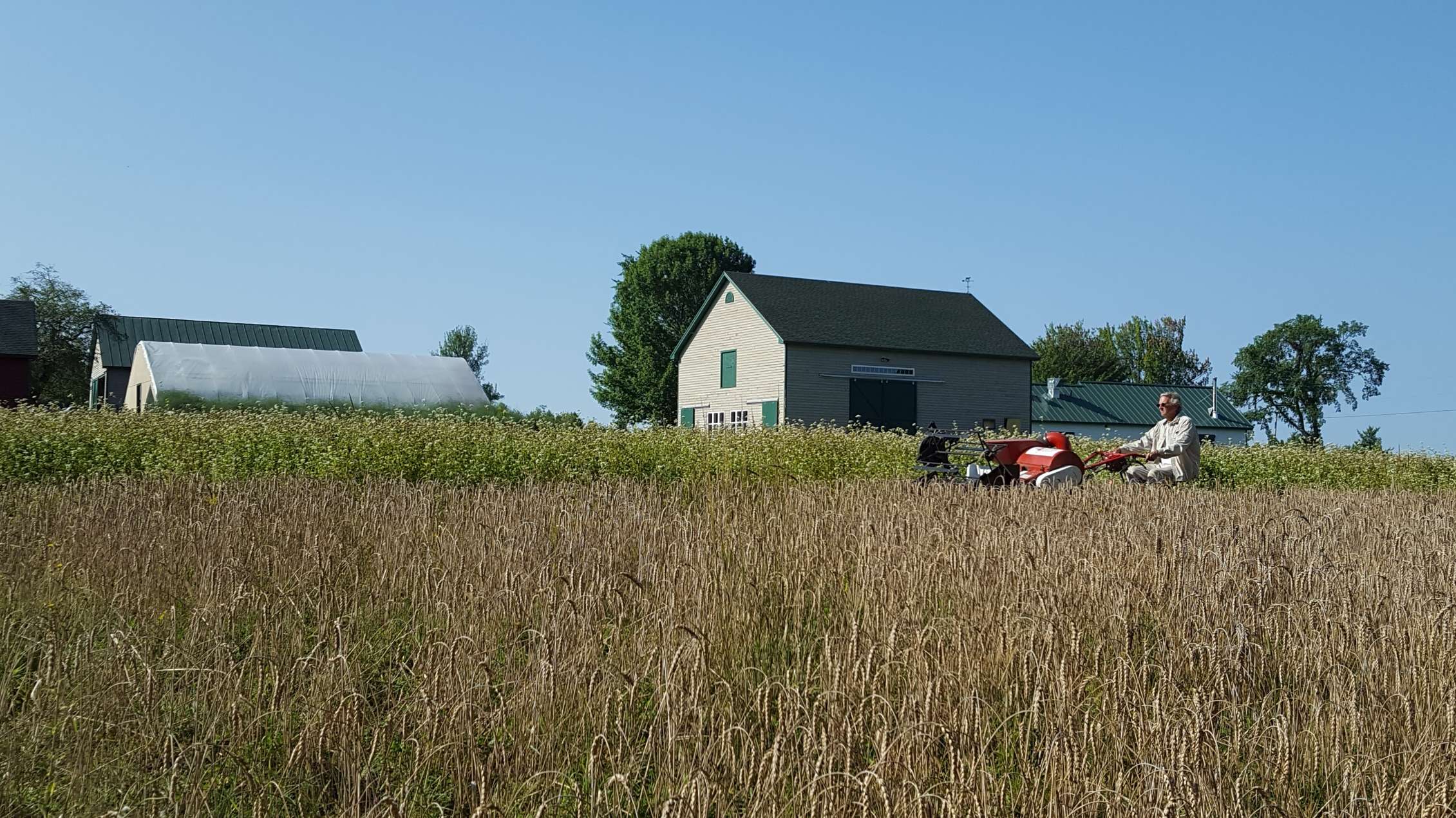
Skowhegan mill doubles shifts to handle surging demand for flour
 File photo / Amber Waterman
Maine Grains founder and President Amber Lambke is adding shifts to keep up with demand for flour.
File photo / Amber Waterman
Maine Grains founder and President Amber Lambke is adding shifts to keep up with demand for flour.
A grist mill in Skowhegan has seen demand skyrocket during the pandemic, and has added extra shifts to keep up with retail and wholesale orders.
“We saw an enormous spike in online sales,” Maine Grains Inc. founder and president Amber Lambke told Mainebiz.
The mill traditionally produces flour, packaged in 50-pound bags, for the wholesale market, which includes bakers and breweries throughout the Northeast.
The pandemic resulted in a surge of home baking, resulting in shortages of flour on retail shelves.
“It was stressful, but we are able to keep up,” said Lambke, a 2014 Mainebiz Women to Watch honoree.
She added, “Sourdough social media activity exploded.”
Online sales skyrocket
Online sales for the mill peaked in early April, but remain at higher levels than before the pandemic, she said.
Online sales skyrocketed compared with numbers before the pandemic. In April, online sales created 180 orders per day, with an average of three products per order.
The mill’s distributors and wholesale customers also saw increased demand for retail-size bags, which they buy by the case-box; each case-box holds six bags of flour. Customers that in the past ordered, say, 20 case-boxes are now five or six times that much.
Overall year-to-date sales, counting wholesale and retail, are up 35% to 40%. Lambke expects to have milled about 2,000 tons of grain by the end of 2020. That compares with 1,200 tons in 2019.
Second shift
As a result, Lambke hired five part-time and three additional full-time workers, for a total of 20 employees, and instituted a second shift. The mill previously ran from 8 a.m. to 4 p.m. It now runs from 6 a.m. to 9 p.m in two shifts.
In addition, she's invested about $15,000 in two new bagging machines that automatically weigh and fill retail-size bags, giving the mill three such machines all together.
Restaurant closures hurt the mill’s sales. But sales increased to bakeries, many of which pivoted to curbside pickup or bread shares and are rebounding fairly quickly, she said.
Maine Grains stone grinds organic wheat and oats at the Somerset Grist Mill the company owns in downtown Skowhegan.
She bought the building, which was formerly a county jailhouse, in 2009. After renovations, she launched operations in 2012.
The mill’s primary business remains wholesale, with customers spread from Maine to New York City.
“We work with over 15 distributors who get our product to bakers, breweries, corner stores, groceries and CSA programs,” she said. “Our online sales go everywhere in the U.S. That used to be a much smaller part of our business and now it’s become much bigger.
"I expect that will slow down a little bit, but we’ve gained more customers who have realized the importance of regional food economies, including grains, that can provide resilience in a time of need.”
The mill also recently expanded the number of grain farms it works with. Before the pandemic, it worked with about 45 farms.
Somali-grown flint corn
“In the middle of the pandemic, we made our first purchase from the Somali Bantu Community Association” in Lewiston, which runs Liberation Farms, a program to help Somali Bantu families start farms on land in Auburn, New Gloucester and Lewiston, according to its website. The program now comprises scores of small farms.
The mill recently bought two tons of “flint corn” from Liberation Farms and plans to buy more, Lambke said.
“That contributes to an even more robust grain infrastructure in Maine,” she said.

Flint corn has a hard outer layer but is milled for cornmeal to make things like flatbread and porridge, she explained.
“We’re featuring their cornmeal in a bag” with Somali recipes, she said. The launch is being advertised through the mill’s email newsletter this week.
She is also part of an effort, through the Heritage Seed Restoration Project of Skowhegan’s Maine Grain Alliance, to develop rare and heritage varieties of grain that are adaptable to Maine’s climate.
In recent years, small quantities of an imported Estonian hard winter wheat, called sirvinta, have been in production at commercial scale at farms across Maine. Lambke mills as much as 10 tons of sirvinta per year, grown by central Maine farmers, for wholesale and retail sales.
The seed restoration project started in 2013. Richard Roberts, who directs the project and is the alliance’s vice chair, said sirvinta production has grown from a single packet of seeds to 35 acres in production last year.

After several years of restoration, the alliance now holds the western hemisphere’s largest supply of sirvinta, according to its website.
The alliance is currently restoring seed for three different strains of Einkorn, black Emmer, flint corn, and several strains of rare and heritage ryes and wheats. The goal is to turn handfuls of carefully kept seed into commercially viable quantities for farms.
Mainebiz web partners
This is great news for Maine Grains, for Skowhegan, for Lewiston/New Gloucester and for Maine overall. Way to go, Amber Lambke and Maine Grains team!
Love to see these businesses and associations thrive. Thank you for all you do and I will say a prayer for continued increases in business!













4 Comments